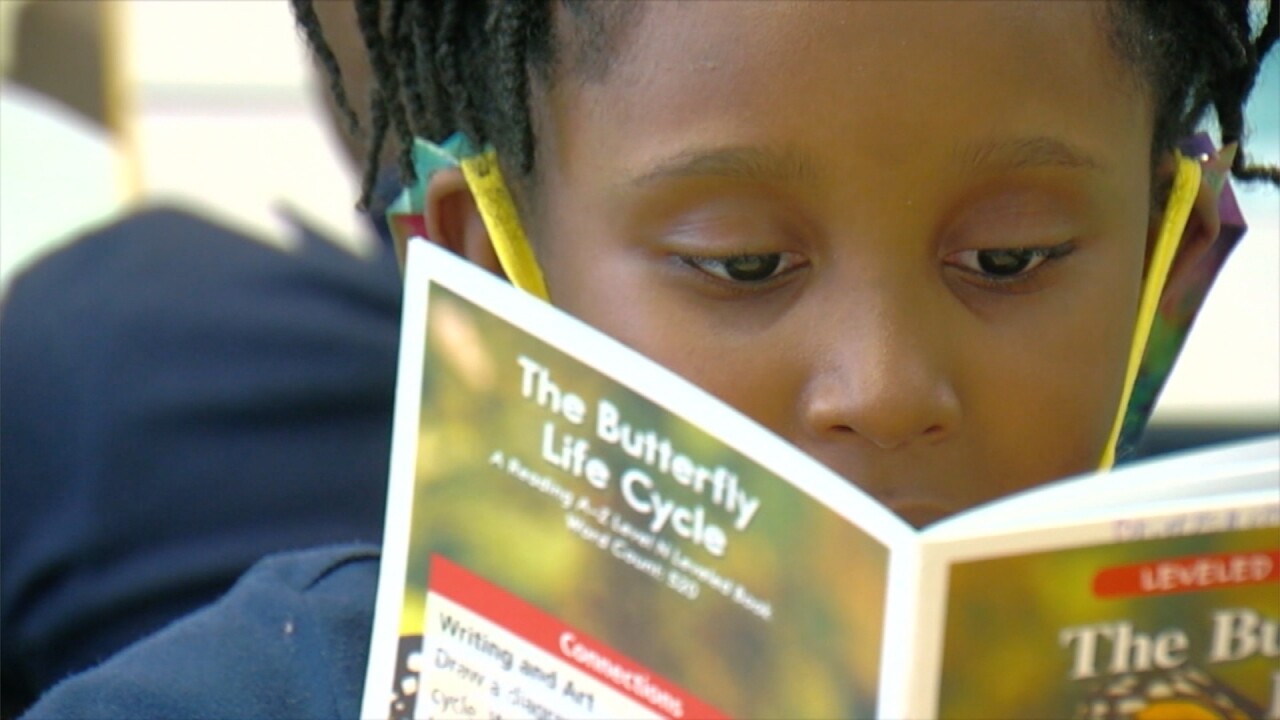BUFFALO, NY (WKBW) — Governor Kathy Hochul is proposing an old approach in hopes of changing reading proficiency state-wide. She’s calling for approval of a “Back to Basics Reading Plan”.
“Reading helps kids like me understand new words and ideas,” declared a student from the Watervliet City School District near Albany, New York.
Governor Hochul appeared there Wednesday to announce her proposal to change the way school children read. “Back to Basics” is a traditional way of learning to read, using phonics instead of contextual clues or "whole language" learning.
“About 20 years ago, they thought it's a whole different way of learning, why don't we just put kids in a room with books and they'll figure it out? Do you think that's very smart?" Hochul asked schoolchildren. “No,” one replied.

The research is proving it's not working as nationwide reading scores continue to dip.
The COVID pandemic dropped causing a major dip in reading. Data from New York State testing last year shows more than half of all third graders do not read at a proficient level. Those numbers are similar for students through eighth grade.
“We’re thrilled. We're thrilled. We finally feel like we're being heard,” responded Anne Ryan, executive director, Read to Succeed Buffalo.

Ryan is embracing the governor's proposal to go back to basics when it comes to learning how to read.
“A child needs to understand what letters are, letters represent sound, putting them together, they represent a word those words have meaning and then once a child isn't so focused on decoding those words, they can begin to read those words and sentences and comprehend what they're reading,” Ryan explained.
Dr. Wendy Paterson is dean of the School of Education at SUNY Buffalo State and a literacy specialist. She's been on the frontlines of reading research for 30 years. Paterson tells me every child is different.

“And you need to be able to adjust. If something doesn't work, you stop doing it, you do something different. and if that works, you do more of it. and it sounds simplistic. But they keep coming up with ways of labeling it and everybody says it's research-based and it is everything every process that they've come up with, is based on somebody's research,” Dr. Paterson noted.
As Paterson discussed using a basic, phonics method, she reflected on how there was a so-called ‘reading wars’ a couple of decades ago.

“The last time we had this was actually in the 1990s and it was called the ‘Reading Wars’ and those wars were primarily between whole language supporters and direct instruction supporters or what you would call phonics first, so for me, it's historical. It's a little feeling of Déjà vu,” commented Dr. Paterson. “We really need to prepare teachers to be excellent literacy teachers, and we need to have school leaders have some confidence in their ability to engage with those teachers and to discover for themselves, what kinds of materials that they want to use for their students.”

Ryan, whose organization, currently has 87 volunteers teaching reading to students at ten Buffalo Public Schools, says what gets lost in literacy learning conversations is too many times everyone wants a “silver bullet” as the solution, but that does not work.
“We know kids must be talked with. They need that back and forth. Conversational turns — they need to be engaged with an adult. Putting a child in front of a program, either on a computer or on a television isn't going to teach a child how to read because there's no back-and-forth connection with that program,” Ryan described. “For pre-k and k, it's focused on phonemic awareness, alphabet, letter recognition, and sight words if they get to know the letters and letter sounds. And then in first, second, third grade, we're really focused on fluency, vocabulary, and comprehension.”
Both literacy experts tell me a reading lesson can start right in your home.

“Number one teacher for every child is the parent or caregiver that's with that child for the first four basically years until they come to formal schooling,” Dr. Paterson remarked.
“But it can be a caregiver, it can be a parent who's reading, who's having back and forth conversations about what they're reading, asking those really deep questions that connect the text to the child,” Ryan replied.
Along with the proposed change, Governor Hochul is also asking for approval of $10 million to create a teacher training program to educate teachers on the reading changes. But this would all need approval by the state legislature.




